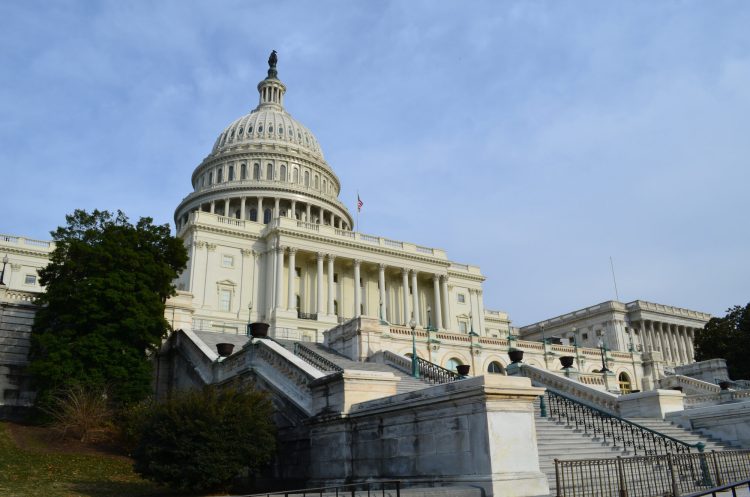There are many ways that you, as a volunteer Fiscal Lookout, can help spread The Concord Coalition’s message of fiscal responsibility and generational equity. Two primary methods include writing a “Letter to the Editor” in your local newspaper and reaching out to your member of Congress directly.
Below you will find helpful tips for both, including some suggested content. To be most persuasive, however, such outreach should be organic and written in your own words. Most important, if you reference The Concord Coalition directly, you should acknowledge that you are a volunteer with the organization. Lastly, because Concord is a nonpartisan organization, if you identify yourself as one of our volunteers, please ensure your outreach is nonpartisan too.
Contact Concord’s National Field Director, Phil Smith, for any questions or further assistance: [email protected].
Writing a “Letter to the Editor:”
To submit a “Letter to the Editor,” visit your local newspaper’s website to see if they have a specific process or set of rules to follow. Generally, most papers require letters to be 300 words or less. Your submission should also include your name, town of residence and your phone number for verification purposes (phone numbers are typically unpublished). The newspaper may also ask you to disclose any affiliations that are relevant to the topic of your letter.
Here are some helpful tips to ensure your letter gets published: make it personal, stick to the facts and end with a call to action.
Fiscal facts worth consideration for your letter:
- Despite a sustained period of relative peace and prosperity, our budget deficits have been rising, not falling, so when COVID-19 struck earlier this year, our federal balance sheet was already strained.
- Although the actions by Congress in response to the pandemic were appropriate and necessarily large, they have had a tremendous impact on our federal budget: more than a $3 trillion budget deficit this fiscal year, which was more than triple initial forecasts.
- Large, growing budget deficits have put our national debt on a projected path to exceed 100 percent of our economy (GDP) by the end of this fiscal year (September 2021).
- If Congress and the President set a goal of reducing projected debt to 100 percent of GDP by 2050 (basically the current level), and implemented those policies beginning in 2025, lawmakers would have to find savings equal to nearly three percent of GDP each year.
- To put that in context, the first-year savings alone would have to amount to roughly $730 billion dollars.
- Looking to the future, the deficit effects of the pandemic wane, but the underlying structural imbalance between revenues and spending continues and widens.
- CBO estimates this year’s budget deficit at 15 percent of GDP, the largest it has been since the end of World War II. Deficits are projected to fall to 8.6 percent of GDP in 2021 and continue to fall through 2027, but they increase again to 5.3 percent of GDP in 2030. That level is historically high and more than one-and-a-half times the average over the past 50 years (3.0 percent of GDP).
- Some consequences of high and rising debt include increased borrowing costs, reduced business investment, slower economic growth and increased risk of a fiscal crisis.
- Interest rates are near historic lows, but we have run up such a large amount of debt that low interest rates still cannot prevent spiraling interest costs.
- Interest is projected to double as a share of GDP by 2033 — from 1.6 percent of GDP this year to 3.2 percent — and keep rising to 8.1 percent of GDP over the next 30 years.
E-mailing your member of Congress:
Elected leaders like to hear from their own constituents on key issues, so be sure to contact your district’s Representative and state’s Senators.
You can find the names of your senators and representatives, as well as their contact information, via the links below. Please know that for security purposes, almost all Congressional offices require letters to be sent via email or an internet web portal. Paper-based constituent mail is subject to screening and irradiation, which significantly delays its arrival on Capitol Hill – many offices simply will not accept it.
Before drafting your letter, please contact Phil Smith to find out if there have been any recent interactions with the member’s office. Phil can likely provide specific tips.
Writing to elected leaders is also a great opportunity to promote Concord’s federal budget exercise. Getting such a request from a constituent is often quite persuasive.
Find your U.S. Representative by clicking here. Find your U.S. Senator by clicking here. Below is a sample template for a letter/e-mail to a member of Congress:
Date
The Honorable ________
Office Address
United States House of Representatives/United States Senate
City, State, Zip Code
Dear Representative/Senator ______________:
[INSERT MESSAGE: Be direct, succinct and include the purpose of your writing in the first paragraph. Do not try to cram too much into the message and, as you would with a “Letter to the Editor,” stick to the facts and your call to action.]
Sincerely,
Your Name
Title
Street Address
City, State Zip Code
Phone Number and/or E-mail
Continue Reading


